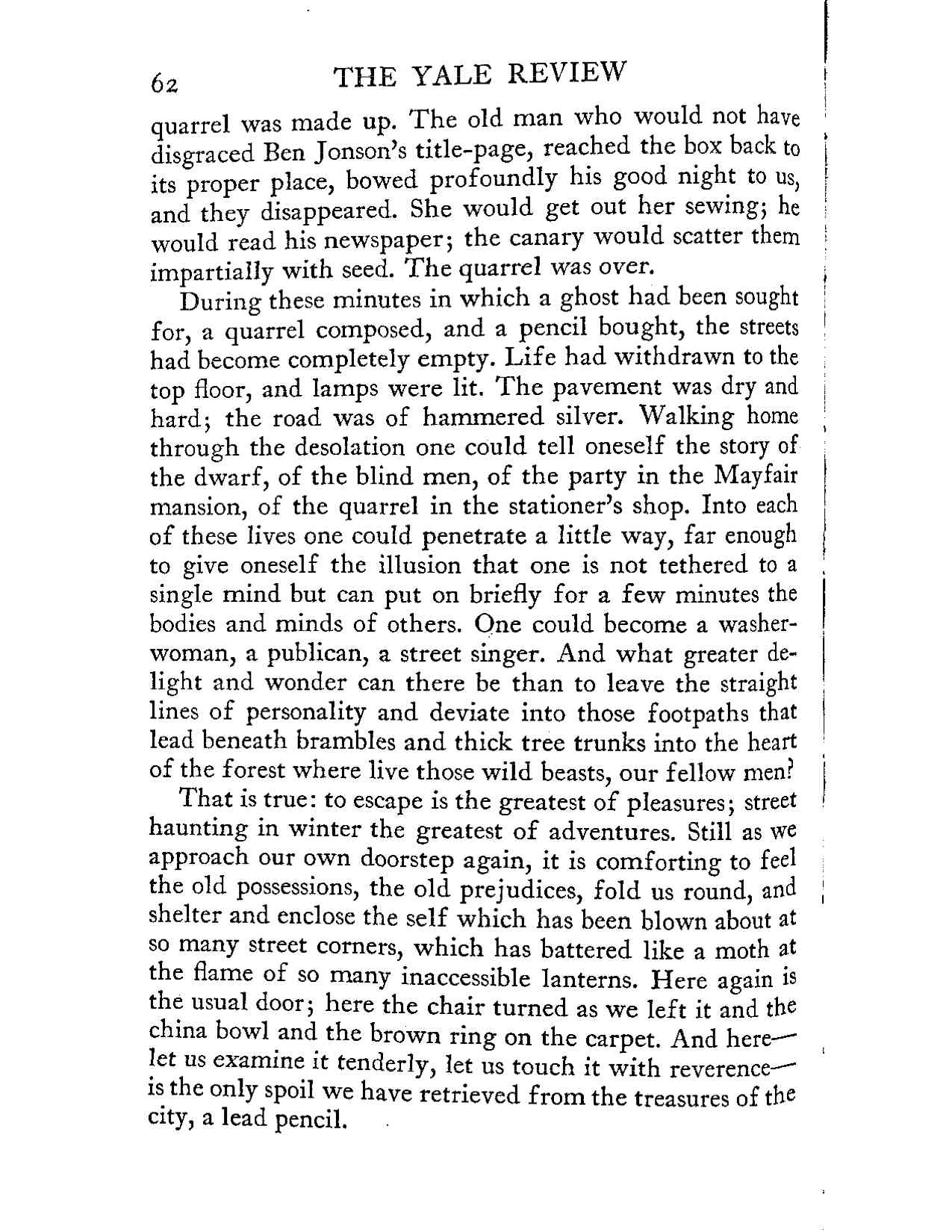
quarrel was made up. The old man, who would not have
disgraced Ben Jonson's title-page, reached the box back to
its proper place, bowed profoundly his good night to us,
and they disappeared. She would get out her sewing; he
would read his newspaper; the canary would scatter them
impartially with seed. The quarrel was over.
During these minutes in which a ghost has been sought
for, a quarrel composed, and a pencil bought, the streets
had become completely empty. Life had withdrawn to the
top floor, and lamps were lit. The pavement was dry and
hard; the road was of hammered silver. Walking home
through the desolation one could tell oneself the story of
the dwarf, of the blind men, of the party in the Mayfair
mansion, of the quarrel in the stationer's shop. Into each
of these lives one could penetrate a little way, far enough
to give oneself the illusion that one is not tethered to a
single mind, but can put on briefly for a few minutes the
bodies and minds of others. One could become a washer-
woman, a publican, a street singer. And what greater de-
light and wonder can there be than to leave the straight
lines of personality and deviate into those footpaths that
lead beneath brambles and thick tree trunks into the heart
of the forest where live those wild beasts, our fellow men?
That is true: to escape is the greatest of pleasures; street
haunting in winter the greatest of adventures. Still as we
approach our own doorstep again, it is comforting to feel
the old possessions, the old prejudices, fold us round; and
shelter and enclose the self, which has been blown about at
so many street corners, which has battered like a moth at
the flame of so many inaccessible lanterns. Here again is
the usual door; here the chair turned as we left it and the
china bowl and the brown ring on the carpet. And here—
let us examine it tenderly, let us touch it with reverence—
is the only spoil we have retrieved from all the treasures of the
city, a lead pencil.






